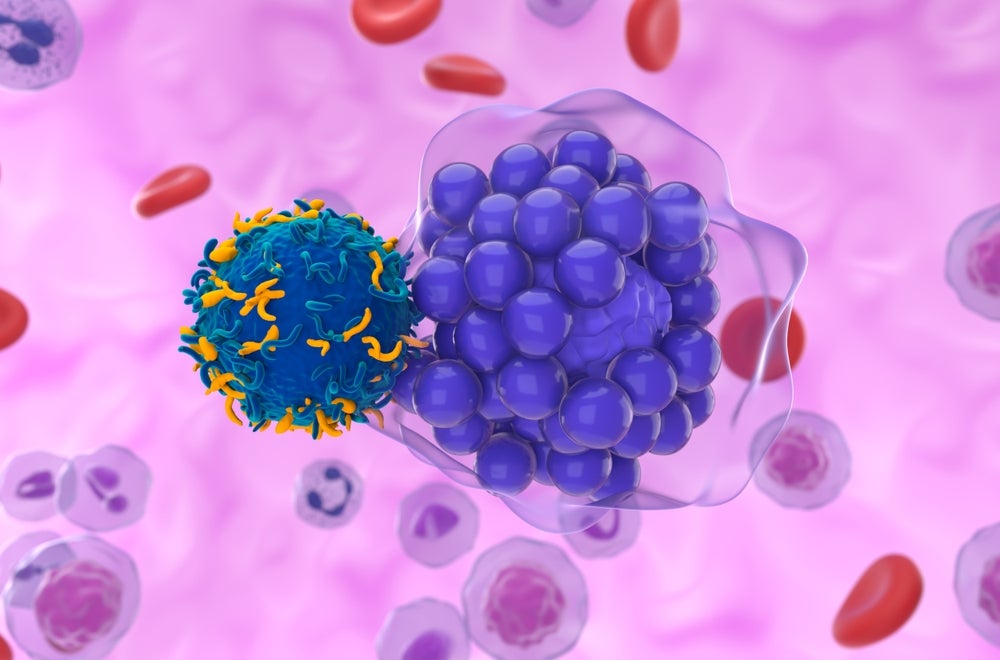AI Enhances Success Rates of IVF Treatments, New Research Shows
During the intricate process of in vitro fertilization (IVF), one of the pivotal moments involves the precise administration of a hormone injection commonly referred to as the ‘trigger shot’. This injection is crucial for maturing the eggs nestled in the small sacs, known as follicles, located in the ovaries. The careful timing of this hormone […]


During the intricate process of in vitro fertilization (IVF), one of the pivotal moments involves the precise administration of a hormone injection commonly referred to as the ‘trigger shot’. This injection is crucial for maturing the eggs nestled in the small sacs, known as follicles, located in the ovaries. The careful timing of this hormone trigger is essential, as its efficacy is significantly diminished if administered when the follicles are either too small or too large. Thus, reproductive endocrinologists rely on advanced imaging techniques like ultrasound scans to assess the size of the follicles and make informed decisions regarding the optimal timing for this critical injection.
Recent advancements in artificial intelligence (AI) have paved the way for a deeper understanding of follicular dynamics during IVF treatments. Researchers have harnessed explainable AI techniques to delve into an expansive dataset encompassing the IVF journeys of over 19,000 patients. This retrospective analysis aims to uncover the follicle size parameters that correlate with the retrieval of mature eggs and, ultimately, the success of resulting pregnancies. This innovative approach signifies a dramatic shift towards personalized IVF protocols that can provide insights beyond traditional evaluation methods.
Through their comprehensive analysis, the researchers discovered that administering the trigger shot when a significant proportion of follicles measure between 13 to 18mm is linked with higher rates of retrieving mature eggs. This revelation is paramount, as it highlights that the range of follicle sizes—previously underappreciated in clinical practice—can play a significant role in enhancing the overall efficacy of IVF treatment. Conventionally, clinicians have focused primarily on the sizes of the lead follicles, often disregarding the potential contributions of intermediate-sized follicles to successful egg retrieval.
The insights gained from this study challenge existing norms within IVF practices, where the prevalent threshold for timing the trigger shot has typically relied on assessing just a few of the largest follicles. The new findings advocate for a more nuanced approach, encouraging clinicians to consider a broader spectrum of follicle sizes to maximize the chances of retrieving viable eggs. This data-driven perspective positions AI as a fundamental tool in the evolving landscape of reproductive medicine, where precision can make a difference between success and failure for hopeful parents.
Importantly, the results indicate a delicate balance. While an increased number of follicles in the desired size range correlates with higher success rates, an excess of larger follicles—especially those measuring more than 18mm—can lead to complications, such as premature elevation of progesterone levels. This hormonal fluctuation can hinder the endometrial lining’s health, ultimately impairing embryo implantation and reducing the likelihood of live births. The intricate interplay of hormones and follicle sizes brings to light the sophistication of reproductive endocrinology, where every detail matters.
The implications of this research extend far beyond the immediate clinical results for individual patients. It represents a paradigm shift in how reproductive healthcare can leverage complex datasets to provide more tailored and effective treatments. By envisioning a future where AI algorithms assist clinicians in making timely and informed decisions, researchers aim to enhance not just the success rates of IVF but also the overall patient experience and satisfaction. The envisioned tools will not only aid in determining the optimal timing for hormone shots but will also support clinicians throughout the entire IVF journey, ensuring that every couple receives personalized guidance.
The collaborative effort among researchers from leading institutions such as Imperial College London, the University of Glasgow, and the University of St Andrews emphasizes the importance of interdisciplinary approaches in tackling the complex challenges of infertility. This research, published in the esteemed journal Nature Communications, showcases the potential of combining clinical expertise with cutting-edge technology to forge pathways toward improved reproductive health and successful family outcomes.
As the field of reproductive medicine continues to evolve, the lessons learned from this AI-driven analysis could serve as a blueprint for further advancements in personalized healthcare. The medical community must remain vigilant and proactive in integrating such insights into practice, simultaneously refining their treatment protocols based on robust data to meet the unique needs of their patients. This journey toward precision medicine in reproductive health is not merely an academic pursuit; it embodies hope for the countless couples longing to conceive.
The study’s findings resonate with the broader narrative of AI’s role in healthcare, where explainable AI offers a window into otherwise opaque data processes. Acknowledging the potential risks and ethical considerations surrounding AI deployment in medical settings is crucial. Ensuring that healthcare professionals fully understand AI recommendations will inspire trust and facilitate collaborative decision-making. As the dynamics of fertility treatments shift, they must remain anchored in a patient-centered approach that prioritizes informed consent and individualization of care.
Ultimately, the research illustrates a fundamental truth: that IVF treatments, while often invasive and costly, can become more effective through informed decision-making rooted in empirical data. By transforming the way clinicians approach follicular assessments, the study promises to increase the chances of successful pregnancies, thereby fulfilling the shared dream of countless couples facing the challenges of infertility. The integration of AI into IVF practices is not just about technological advancement; it is about empowering patients with greater probabilities of success and during what can be one of the most emotionally taxing experiences of their lives.
Subject of Research: IVF Treatment and Follicle Size Analysis Using AI
Article Title: Timing of Trigger Injection in IVF Linked to Follicle Sizes Through AI Study
News Publication Date: October 2023
Web References: Imperial College London
References: Details available within the full study in Nature Communications.
Image Credits: Imperial College London.
Keywords: IVF, Artificial Intelligence, Follicle Size, Reproductive Health, Explainable AI, Hormone Trigger, Patient Outcomes.
What's Your Reaction?

































